今ヒマないので、ザッ。
話題の「第四代」本の一つ、11月New York Review of Booksから刊行予定の
"China's New Rulers: The Secret Files"
Andrew J. Nathan and Bruce Gilley 著
【抜粋】
Secrets of the Fourth Generation
(South China Morning Post 2002.10.07 Focus)
もう一つの話題本は宗海仁『第四代』(10月出版予定)
この宗氏が「江沢民は全面引退」と語った記事が先月30日付けの香港紙『信報』にトップで掲載されてます。たまたまこの日買ったので手元にあるのだが、もう全然書く余裕ナシ。
---
Secrets of the Fourth Generation
(South China Morning Post 2002.10.07 Focus)
ANDREW NATHAN and BRUCE GILLEY
The China led by the new guard of Wen Jiabao, Luo Gan, Hu Jintao, People's Political Consultative Conference Chairman Wu Bangguo, Zeng Qinghong and Li Ruihuan is likely to be a very different place to that overseen by their predecessors. How different remains to be seen.
The men who will take control of the world's most populous country following next month's 16th Party Congress did not run for office or make public promises of change.
Instead, they were considered and approved for promotion by the outgoing leaders, who could draw on detailed confidential reports on each of them compiled by the party's secretive, highly trusted Organisation Department.
These reports form the basis of a remarkable new Chinese-language book, Disidai, or The Fourth Generation, which is being published in November in the United States. Its author is a party insider using the pseudonym Zong Hairen, whom we have found authoritative and reliable. Practically all of his predictions during the past year about the shape of the new leadership have been confirmed by events.
Zong has authorised us to present in English the main findings in his book. We are doing so in two articles, and in a book, China's New Rulers: The Secret Files.
The Organisation Department's investigation reports include selections from each leader's formal and informal remarks delivered confidentially during the past couple of years within party circles. The quotations are intended to show the speakers' views on a host of issues, including, for example, the plight of workers and farmers as China enters the World Trade Organisation, how party rule can be sustained and relations with the US.
Since all the new leaders were already in official positions when they spoke, they explained and defended current policy. But they did so in ways that reveal their preoccupations, their priorities and their styles of thinking. Their remarks offer some guidance to the ways in which they will govern China once they are in power.
The new rulers, will, as members of the all-powerful Politburo Standing Committee, set policy for every function of government, whether in economic planning, police control or foreign affairs. In some of their statements, the new members of the standing committee, led by Vice-President Hu Jintao, 59, recognise the recent failings of party rule and popular discontent over it, but they are confident that they can win support and co-opt or crush opposition.
That confidence clearly owes much to the economic boom and relative stability achieved since the Tiananmen events of 1989. They all seem to have no doubt about China's rising global status, which they plan to maintain through a co-operative relationship with the US and a broader diplomacy embracing Europe and Russia. Their confidence is also evident in their view that China will continue successfully to control Tibet and Xinjiang and advance its claim to Taiwan.
But the new rulers do not plan merely to continue the status quo. A significant constituency, led by liberal Li Ruihuan, 68, a former carpenter and mayor of Tianjin, who is slated to take over the chairmanship of the National People's Congress in March next year, wants to see semi-competitive elections for government positions up to the provincial level as well as greater freedom, within limits, of the mainland's media.
Those in charge of China's economic future - especially premier-designate Wen Jiabao - have talked about their plans to address the helter-skelter market transition of the past two decades with more emphasis on growth based on rising domestic demand and less on growth resulting from exports. They say that they want to reduce income inequalities and do more to protect the environment.
None of the new leaders hints at any willingness to compromise the Communist Party's monopoly on power. If they can control the pace of change, China will likely move into a post-ideological authoritarianism that emphasises economic development. But if their limited reforms lead to demands for greater change,China could slip more quickly towards a democratic revolution of the sort witnessed in Hungary and Poland.
Like their predecessors, the Fourth Generation leaders believe that the first requirement for China's continued social and political stability is rapid economic growth. But they have new ideas on how to achieve it. Under late paramount leader Deng Xiaoping and President Jiang Zemin there was a consensus that export-led growth, stimulated by foreign investment, was the secret to rapid development. But Mr Wen, the head of the State Council, stresses a different vision of growth through enlarged domestic demand:
''The long-term strategic direction for China's economic growth has to be rooted in the expansion of domestic demand ... Raising the people's standard of living is the basic starting point for various projects. Clearly we need to undertake effective measures to raise the incomes of residents, and especially the family incomes of farmers and lower- and middle-income residents of small towns, and work to raise the purchasing power of these residents.''
This policy could have several consequences if carried out. By raising incomes and living standards it could help to consolidate the regime's popularity, make the China market a reality for both Chinese and foreign firms,and enlarge China's freedom of action in foreign policy by diminishing its dependency on exports to Western markets.
China suffers from vast disparities in income between the relatively prosperous coastal cities and the poor agricultural and industrial regions inland. Such inequalities are cited both by the regime's domestic critics and by foreign analysts anticipating a ''collapse of China''.
The same problems are on the minds of the Fourth Generation. While visiting poor districts in Shaanxi province in 1999, Mr Li said: ''The Chinese Communist Party has been in power for 50 years but there are still 30 million people in poverty and 50 million people without primary education. This is our failure, our sin.''
A shift in economic strategy may mean more pressure on unprofitable state-owned enterprises (SOEs). After nearly two decades during which officials encouraged the growth of non-state-owned companies and sold off the assets of loss-making state corporations, SOEs account for only about a quarter of the gross domestic product. Many remain inefficient, which is why more than half of the loans made by state banks are not paid back and workersand pensioners frequently protest over unpaid wages and pensions.
Mr Wen and other incoming economic policymakers would like to phase out more quickly those SOEs that do not make money, including selling off some large state enterprises, so long as they are not strategic industries, such as defence, energy, transport, and telecommunications.
On environmental issues, Mr Wen is the most forward-looking leader yet to appear in China. He has been critical of the Great Western Development Plan, under which Beijing has poured government money into building up the western hinterland to exploit the region's resources and tie it politically to the rest of the nation.
Mr Wen has argued for slower step-by-step development that pays attention to controlling air and water pollution, among other measures, to stop deterioration of the environment. He has also been critical of the grand south-north water transfer plan that has been proposed for a network of canals and aqueducts to carry huge amounts of water from the south, where water is plentiful, to the dry north. In challenging the plan, Mr Wen speaks with a modesty that is rare for a Communist leader: ''We must conserve water before moving it, control pollution before turning on the tap, protect the environment before consuming water. We must fully think through the economic, social, and ecological effectiveness of transporting water ... Water conservation must be tried before undertaking water transfer.''
The new leadership also wants to loosen some social controls while maintaining a police state. Director of Law and Security Luo Gan advocates reforming the Maoist household registration system. The latter still ties peasants administratively to the land, by creating a single national registration status for all citizens. If Mr Luo has his way, peasants will be able to migrate freely to wherever they have work, and any citizen will be able to get a passport with ease.
話題の「第四代」本の一つ、11月New York Review of Booksから刊行予定の
"China's New Rulers: The Secret Files"
Andrew J. Nathan and Bruce Gilley 著
【抜粋】
Secrets of the Fourth Generation
(South China Morning Post 2002.10.07 Focus)
もう一つの話題本は宗海仁『第四代』(10月出版予定)
この宗氏が「江沢民は全面引退」と語った記事が先月30日付けの香港紙『信報』にトップで掲載されてます。たまたまこの日買ったので手元にあるのだが、もう全然書く余裕ナシ。
---
Secrets of the Fourth Generation
(South China Morning Post 2002.10.07 Focus)
ANDREW NATHAN and BRUCE GILLEY
The China led by the new guard of Wen Jiabao, Luo Gan, Hu Jintao, People's Political Consultative Conference Chairman Wu Bangguo, Zeng Qinghong and Li Ruihuan is likely to be a very different place to that overseen by their predecessors. How different remains to be seen.
The men who will take control of the world's most populous country following next month's 16th Party Congress did not run for office or make public promises of change.
Instead, they were considered and approved for promotion by the outgoing leaders, who could draw on detailed confidential reports on each of them compiled by the party's secretive, highly trusted Organisation Department.
These reports form the basis of a remarkable new Chinese-language book, Disidai, or The Fourth Generation, which is being published in November in the United States. Its author is a party insider using the pseudonym Zong Hairen, whom we have found authoritative and reliable. Practically all of his predictions during the past year about the shape of the new leadership have been confirmed by events.
Zong has authorised us to present in English the main findings in his book. We are doing so in two articles, and in a book, China's New Rulers: The Secret Files.
The Organisation Department's investigation reports include selections from each leader's formal and informal remarks delivered confidentially during the past couple of years within party circles. The quotations are intended to show the speakers' views on a host of issues, including, for example, the plight of workers and farmers as China enters the World Trade Organisation, how party rule can be sustained and relations with the US.
Since all the new leaders were already in official positions when they spoke, they explained and defended current policy. But they did so in ways that reveal their preoccupations, their priorities and their styles of thinking. Their remarks offer some guidance to the ways in which they will govern China once they are in power.
The new rulers, will, as members of the all-powerful Politburo Standing Committee, set policy for every function of government, whether in economic planning, police control or foreign affairs. In some of their statements, the new members of the standing committee, led by Vice-President Hu Jintao, 59, recognise the recent failings of party rule and popular discontent over it, but they are confident that they can win support and co-opt or crush opposition.
That confidence clearly owes much to the economic boom and relative stability achieved since the Tiananmen events of 1989. They all seem to have no doubt about China's rising global status, which they plan to maintain through a co-operative relationship with the US and a broader diplomacy embracing Europe and Russia. Their confidence is also evident in their view that China will continue successfully to control Tibet and Xinjiang and advance its claim to Taiwan.
But the new rulers do not plan merely to continue the status quo. A significant constituency, led by liberal Li Ruihuan, 68, a former carpenter and mayor of Tianjin, who is slated to take over the chairmanship of the National People's Congress in March next year, wants to see semi-competitive elections for government positions up to the provincial level as well as greater freedom, within limits, of the mainland's media.
Those in charge of China's economic future - especially premier-designate Wen Jiabao - have talked about their plans to address the helter-skelter market transition of the past two decades with more emphasis on growth based on rising domestic demand and less on growth resulting from exports. They say that they want to reduce income inequalities and do more to protect the environment.
None of the new leaders hints at any willingness to compromise the Communist Party's monopoly on power. If they can control the pace of change, China will likely move into a post-ideological authoritarianism that emphasises economic development. But if their limited reforms lead to demands for greater change,China could slip more quickly towards a democratic revolution of the sort witnessed in Hungary and Poland.
Like their predecessors, the Fourth Generation leaders believe that the first requirement for China's continued social and political stability is rapid economic growth. But they have new ideas on how to achieve it. Under late paramount leader Deng Xiaoping and President Jiang Zemin there was a consensus that export-led growth, stimulated by foreign investment, was the secret to rapid development. But Mr Wen, the head of the State Council, stresses a different vision of growth through enlarged domestic demand:
''The long-term strategic direction for China's economic growth has to be rooted in the expansion of domestic demand ... Raising the people's standard of living is the basic starting point for various projects. Clearly we need to undertake effective measures to raise the incomes of residents, and especially the family incomes of farmers and lower- and middle-income residents of small towns, and work to raise the purchasing power of these residents.''
This policy could have several consequences if carried out. By raising incomes and living standards it could help to consolidate the regime's popularity, make the China market a reality for both Chinese and foreign firms,and enlarge China's freedom of action in foreign policy by diminishing its dependency on exports to Western markets.
China suffers from vast disparities in income between the relatively prosperous coastal cities and the poor agricultural and industrial regions inland. Such inequalities are cited both by the regime's domestic critics and by foreign analysts anticipating a ''collapse of China''.
The same problems are on the minds of the Fourth Generation. While visiting poor districts in Shaanxi province in 1999, Mr Li said: ''The Chinese Communist Party has been in power for 50 years but there are still 30 million people in poverty and 50 million people without primary education. This is our failure, our sin.''
A shift in economic strategy may mean more pressure on unprofitable state-owned enterprises (SOEs). After nearly two decades during which officials encouraged the growth of non-state-owned companies and sold off the assets of loss-making state corporations, SOEs account for only about a quarter of the gross domestic product. Many remain inefficient, which is why more than half of the loans made by state banks are not paid back and workersand pensioners frequently protest over unpaid wages and pensions.
Mr Wen and other incoming economic policymakers would like to phase out more quickly those SOEs that do not make money, including selling off some large state enterprises, so long as they are not strategic industries, such as defence, energy, transport, and telecommunications.
On environmental issues, Mr Wen is the most forward-looking leader yet to appear in China. He has been critical of the Great Western Development Plan, under which Beijing has poured government money into building up the western hinterland to exploit the region's resources and tie it politically to the rest of the nation.
Mr Wen has argued for slower step-by-step development that pays attention to controlling air and water pollution, among other measures, to stop deterioration of the environment. He has also been critical of the grand south-north water transfer plan that has been proposed for a network of canals and aqueducts to carry huge amounts of water from the south, where water is plentiful, to the dry north. In challenging the plan, Mr Wen speaks with a modesty that is rare for a Communist leader: ''We must conserve water before moving it, control pollution before turning on the tap, protect the environment before consuming water. We must fully think through the economic, social, and ecological effectiveness of transporting water ... Water conservation must be tried before undertaking water transfer.''
The new leadership also wants to loosen some social controls while maintaining a police state. Director of Law and Security Luo Gan advocates reforming the Maoist household registration system. The latter still ties peasants administratively to the land, by creating a single national registration status for all citizens. If Mr Luo has his way, peasants will be able to migrate freely to wherever they have work, and any citizen will be able to get a passport with ease.










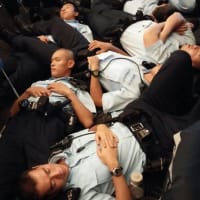
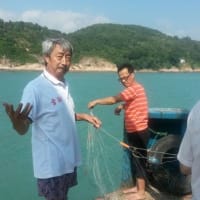
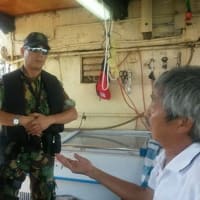
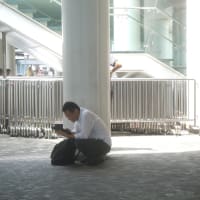
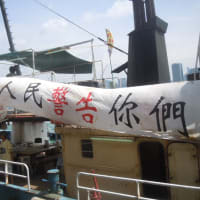
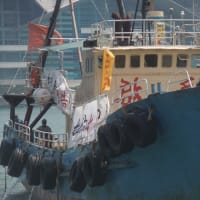
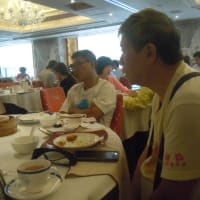
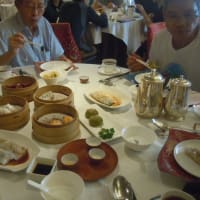
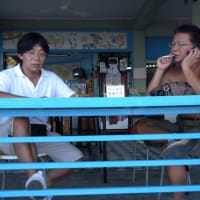
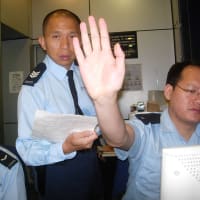
Members of the Fourth Generation are broadly split into two camps about how to address these problems. One group - which includes Mr Hu, Mr Wen and Mr Luo - believes in the use of internal party mechanisms to rectify the behaviour of cadres. Mr Hu has said the party should do a better job of recruiting, evaluating, training, and promoting its cadres.
Another group - which includes Mr Li and, surprisingly, Mr Jiang's top aide, Zeng Qinghong - does not believe that internal mechanisms alone can keep party cadres from indulging in corruption and abuse of power. This group believes party cadres need additional discipline through measures providing for external popular supervision, which they also describe as democracy. These include limited competitive elections and a partially free media.
Mr Li has said: ''If we want to change the situation and to effectively prevent and check corruption, we must constrain and supervise power.''
And on another occasion he said: ''We in the CCP cannot seem to implement successful supervision of ourselves ... Why did an advanced political party, a party that represents the interests of the broadest number of people, come to this pass? Where in Marxism or Deng Xiaoping Theory does it say the party should fear the people, fear supervision by society, fear reforming itself, fear the rule of law, fear telling the people about our own and our families' incomes?''
There is no indication that any member of the Fourth Generation wants to relax the ban on independent worker, peasant, and student organisations of the sort that briefly emerged in 1989 and - in the hardliners' view at the time - threatened party rule.
But some combination of economic crisis, political stalemate, and international changes could make the generally cautious reformers more radical. The investigation reports leave the impression that Mr Li and Mr Zeng - pragmatists with a genuine concern to make the system work better - are not averse to considering unorthodox solutions.
Zong states that if the political pressures make it necessary, several of the new leaders are privately willing to reverse the verdict on Tiananmen - in other words, admit that the 1989 government crackdown on students was wrong. Such an admission would certainly be opposed by Mr Luo and other conservativeleaders who believe that the repression was necessary and that acknowledging that it was a mistake would undermine the authority of the regime.
So far, the new leaders see little need to change Mr Jiang's foreign policies. Mr Jiang's most impressive achievement was to create a degree of stability in political relations between China and the US, despite what the Chinese see as a wildly fluctuating, often irrational American policy towards China. When Mr Jiang took office in 1989, China was subject to sanctions by many countries and was shamed at the United Nations Human Rights Commission by the statements of members deploring the repression of the Tiananmen pro-democracy movement.
Today, as a WTO member, a frequent summit partner of the US, and the designated host of the 2008 Olympics, China sees itself as a respected leader among countries. This is a legacy that Mr Hu's generation will seek to preserve.
In their internal remarks, the new leaders present their country as a pillar of the global status quo, a force for stability and peace. China supports the UN as well as what it calls multi-polarity - the principle that many nations will have a say in world affairs.
For the West, the main message of the material Zong has brought to light is that the new rulers come to power with the self-confidence of men who have outperformed their rivals and have risen to the top of a strong political system. The records and statements make it clear that they have a realistic idea of how their system works and of its weaknesses.
The future may not unfold as the Fourth Generation leaders intend. China may be forced to allow genuine democracy. It may regress toward tighter authoritarianism, or it may collapse. Events could force China into a confrontation with the West, or make it converge with a Western model of economics and society. But none of these possibilities, so often discussed in the West, is ever mentioned by China's new leaders as they prepare to take power.
The New York Review of Books. This is an abridged version of an article that appeared in the magazine. China's New Rulers: The Secret Files by Andrew J. Nathan and Bruce Gilley will be published by New York Review Books in November. Professor Nathan is a specialist on Chinese politics at Columbia University in New York. Bruce Gilley, a former journalist, is a doctoral candidate at Princeton University.
尚、多維新聞網でやっている「江沢民引退」アンケート集計結果を先日からずっと推移をチェックしていたのですが「全面引退に賛成」が圧倒的、更にジワジワ増えてます。
---
[[イ尓]/心]是否贊成江澤民退休
(あなたは江沢民引退に賛成?反対?)
http://www3.chinesenewsnet.com/cgi-bin/vote.cgi?unidoc=big5&mode=show
贊成全退 贊成半退 不應退休
09/28 20:20 0672 0049 0061
85.82% 06.26% 07.79%
10/02 00:02 1623 0154 0097
86.56% 08.21% 05.17%
10/02 17:01 1798 0168 0104
86.82% 08.11% 05.02%
10/03 14:09 2199 0203 0127
86.92% 08.02% 05.02%
10/05 19:33 2333 0208 0134
87.18% 07.77% 05.01%
10/07 11:32 2437 0215 0144
87.13% 07.69% 05.15%
---
相変わらず中国人にも人気ない沢民おじさま...ウッウッ。
バカだな。アノ人、頑固で融通きかないけと、基本的に呑気つうか、「文革屈折世代」のエリート胡錦濤なんかより余程扱いやすいタイプだと思うのだが。
胡錦濤さん、どうも陰湿な感じがしてヤダ。ブッシュ大統領の清華大学講演で、時々画面に写る彼の表情を見てちょっとゾッとしました。
これも書きたいのだが手が何本あっても足りんっ。
ひとまず昨日と8月にチャイナMLに投稿した記事から抜粋。
---
----- Original Message -----
From: "Junko FOX"
To: china@iijnet.or.jp
Sent: Wednesday, August 14, 2002 7:49 PM
Subject: [china 7496] Re: 何清漣・元深セン法制報記者
http://blog.goo.ne.jp/junkofox/e/83e104b16bc59e186683d7d19537d808
----- Original Message -----
From: "Junko FOX" <jj251096@hknet.com>
To: <china@iijnet.or.jp>
Sent: Sunday, October 06, 2002 3:04 PM
Subject: [china 7542] Re: 何清漣・元深セン法制報記者
http://blog.goo.ne.jp/junkofox/e/c9dc657d6ef35b14f15c9f391e3591e7